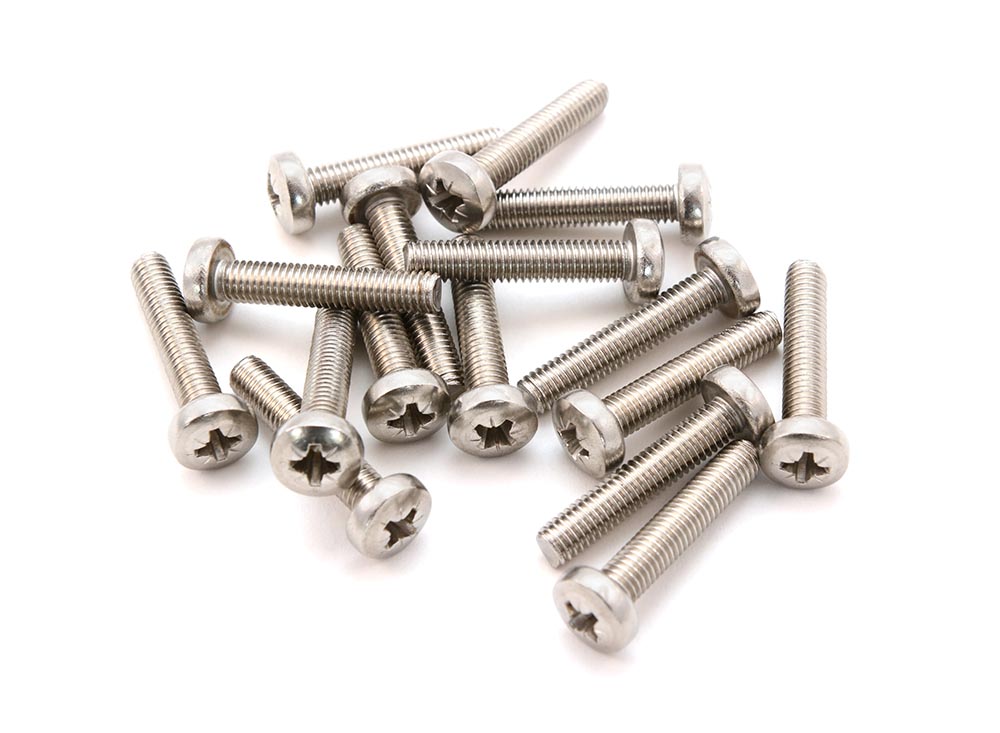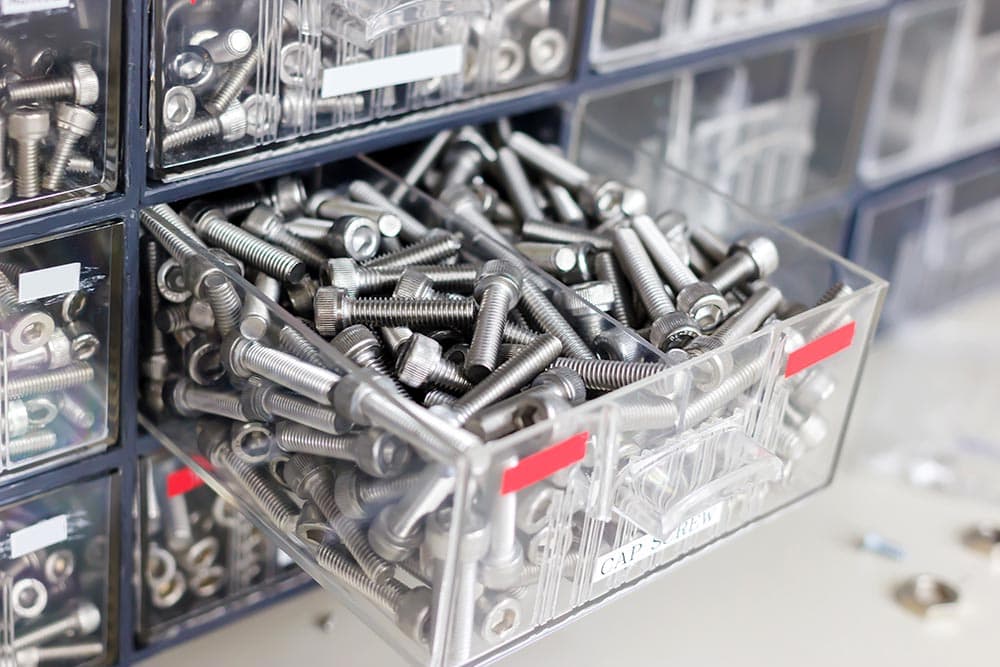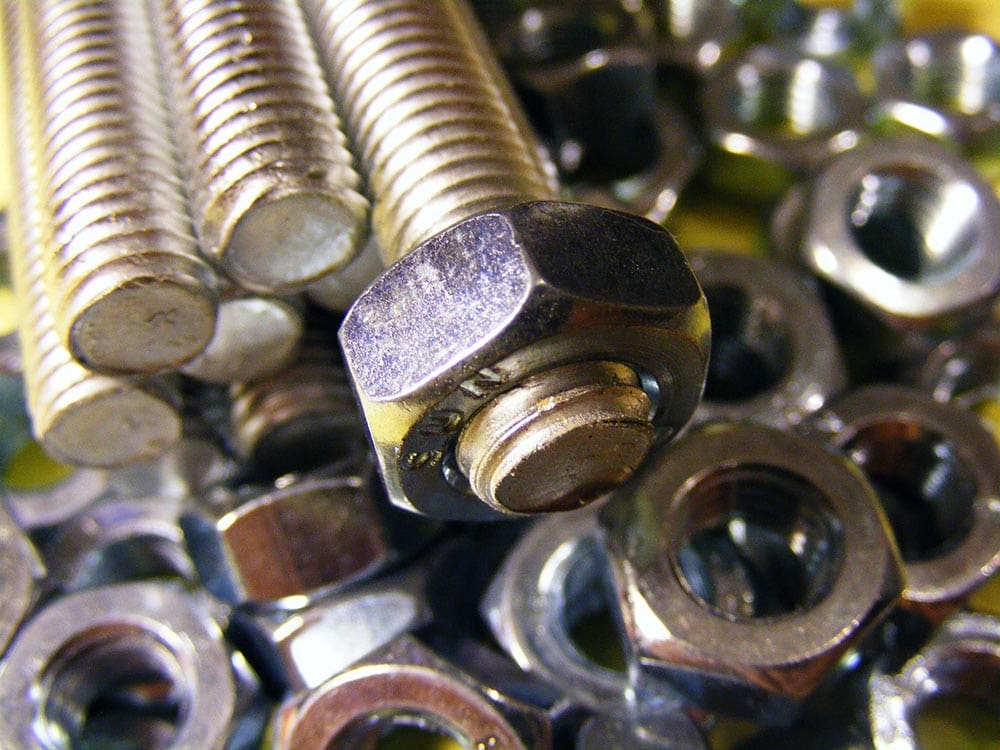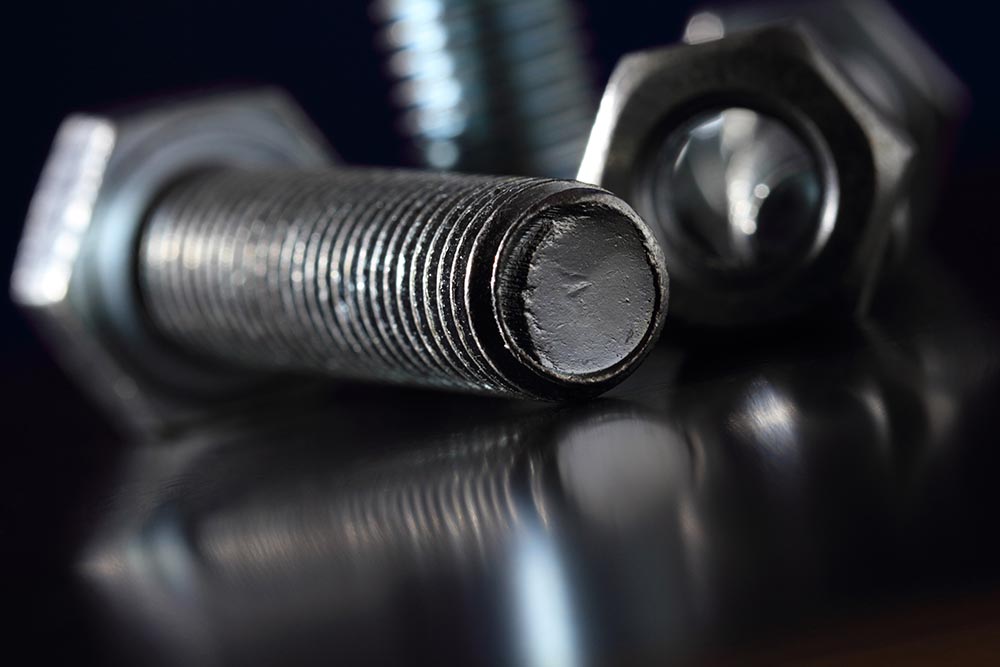What Is a Machine Screw? Pros, Cons, Types & FAQ
-
Codee Chessher
- Last updated:

Any DIY enthusiast out there has at least a few containers of unsorted fasteners, likely including a few machine screws of varying types. Machine screws are primarily used to manufacture electronics, engines, and other industrial equipment, but there’s more to it. Let’s check out everything you need to know about machine screws.
About Machine Screws
Machine screws are fasteners, which means they join two or more objects together. Other than their unique heads, machine screws have a smaller diameter than other fasteners. Perhaps most obvious is their lack of a pointed tip, which means you can only use them in pilot holes or with nuts. In a pilot hole, a machine screw forms an extremely strong joint by stretching under pressure, which is why they’re so strong compared to other fasteners.
Machine screws vary widely in size. The ones in smartphones can have a diameter as small as 3 millimeters, while ones used for industrial applications can get as large as 3 inches in diameter. However, most machine screws are under 1 inch in length.
The other distinguishing characteristic of machine screws is their uniform threading. Unlike wood screws that have a tapered thread, machine screws maintain the same thread diameter from top to bottom. The difference? Tapered screws use the screw’s tapered threads to cut into wood or other soft materials, while machine screws only fit tapped holes.

What Are the Different Types of Machine Screws?
There are numerous types of machine screws, with the main difference between them being the type of head. While the differences may seem minor, each has its strengths.
- Round Head: most common type of machine screw
- Flat Head: used when it’s critical for fasteners to be flush with a surface
- Oval Head: similar to flat head screws, but slightly rounded on the top
- Pan Head: has high outer edges that provide additional tightening torque
- Truss Head: similar in appearance to pan head screws, but with a lower profile
The type of head doesn’t indicate the type of screwdriver or drill bit you use, but many are available in Phillips and flathead styles. Although rarer, there are also combination screws that are more widely compatible. In cases where appearance isn’t important, you can usually use any of those types as long as they’re the right size for your pilot hole.
Where Are Machine Screws Used?
Perhaps unsurprisingly, machine screws are mainly used to join and secure machine components. They’re used in engines, computers, smartphones, construction equipment, and virtually every piece of industrial equipment with fasteners.
Depending on the unique needs of the work at hand, machine screws with different heads are used. For instance, pan heads are used when the head can’t protrude out from the join. This makes them the fastener of choice for cars and engines, where every millimeter of space counts.
Because truss machine screws are more secure than other machine screws, they’re commonly used in the aerospace industry to craft airplanes and other aerial equipment.

Advantages of Machine Screws
Compared to other fasteners, like nails, machine screws have a number of advantages that make them easier to use and stronger once fastened. Let’s check out a few pros.
Small Size
Machine screws with a small diameter make them ideal for jobs where a larger fastener just won’t do. The smallest machine screws hold your phone and laptop together, and larger sizes help hold your car together. The varying types of heads ensure that there’s a machine screw for any particular scenario.
Slotted Head
While machine screws are commonly confused with bolts and vice versa, they’re totally different fasteners. Bolts don’t have slotted heads, while machine screws have slotted heads that can be driven with a drill or screwdriver.
Super Strong
Machine screws are usually made out of stainless steel and are unique from other screws in that they don’t actually drill through anything. When a machine screw is placed into a tapped hole and tightened with a nut, the pressure causes the screw to stretch and form a more secure bond. This is why they’re used to join critical components like engines and appliances.
Can Be Refastened
A huge advantage of machine screws is that if they wear out, you can simply remove the stripped or damaged screw and put a new one in. While welding may be stronger, machine screws are more convenient to fix when damaged.
Disadvantages of Machine Screws
As with any piece of equipment, machine screws have some notable cons that make them unsuitable for some types of work. Let’s check out exactly what these cons are.
Can’t Drill Through Surfaces
With a typical screw, you simply drive it with a drill or screwdriver to secure it and complete your bond. Machine screws require a predrilled hole, causing a lengthier work process. For drilling metal, you will also need a special bit designed to drill metal.
Weaker Than Welding
Fasteners will always be weaker than a direct metal-to-metal connection, such as the bond created by welding. Welding has no threads to strip and isn’t affected by vibration in the way that machine crews are.
Susceptible to Corrosion
Like all metal fasteners, machine screws may rust over time, especially if exposed to water. While many fasteners are made of stainless steel and other corrosion-resistant materials, they can still fall victim to rust. If a machine screw rusts, it’s worse than having no fastener at all.
Frequently Asked Questions
What is the difference between a bolt and a machine screw?
The two main visual differences are that bolts don’t always have threads along their shank, and they typically have a hex head instead of a slotted head. Like machine screws, bolts require a pilot hole.
As far as fasteners go, bolts are used to secure objects together without using pressure, while machine screws need pressure to create a strong bond. Bolts may have threads to tighten like a screw, but this is relatively rare. More commonly bolts are simply slid into position and secured with a nut or other mechanism.

What type of machine screw is the best?
There’s no single best machine screw for all jobs. Machine screws are usually manufactured to fit very specific dimensions because they require a tapped hole. Flat heads are most commonly used when being flush is important, but the other types of heads have little practical difference. In fact, in a lot of cases, you can simply use whichever head looks the best.
How do I decide what type of machine screw to use?
There are three main things to look for in a machine screw: size, material, and thread. Machine screws have to be the same size as the pilot hole, so getting the size right is essential. Material is less important, but it helps to opt for a corrosion-resistant material like stainless steel or zinc-plated metal. Finally, some machine screws only have thread along a portion of the shank, while others have thread along the entire shank. Decide which to use depending on the job at hand.
Conclusion
Machine screws hold together a lot of the most useful objects in our day-to-day lives, like cars, smartphones, appliances, and even airplanes. They can’t be used like a regular screw, but properly used, machine screws are some of the strongest fasteners available.
Featured Image Credit: Sarah Marchant, Shutterstock
Contents


